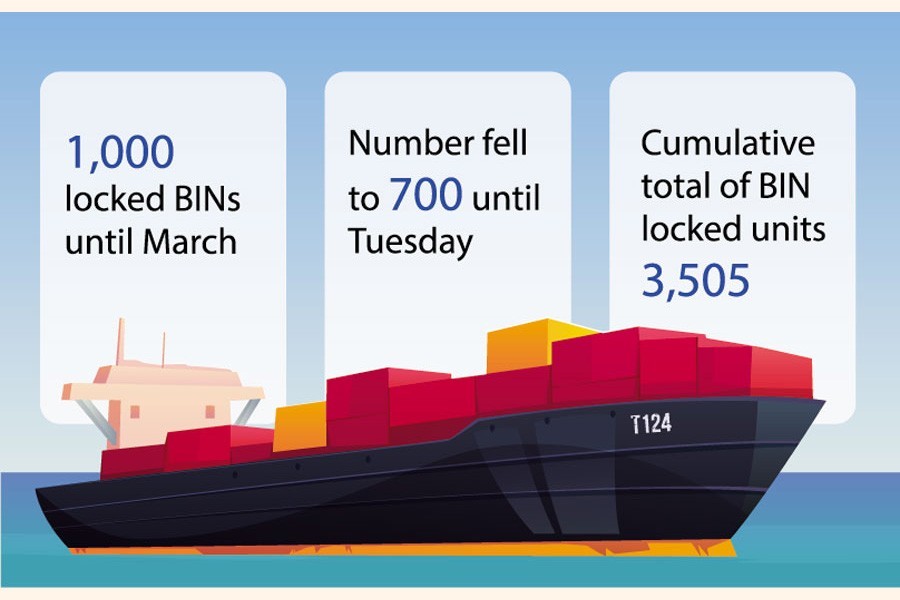The customs bond authority has suspended some 700 bond licences of export-oriented units in recent times.
The suspension was put into effect after detecting irregularities of various types, one being non-submission of details of annual export-import activities by the licence holders.
The customs cannot detect any abuse of bonded warehouse facility unless they are provided with the data on import volume of raw materials and export of finished goods thereof, officials said.
With the latest suspension order issued last month, the Customs Bond Commissionerate (CBC) Dhaka has a cumulative total of 3,505 Business Identification Number (BIN)-locked export-oriented industries.
The commissionerate, in a recent letter to all the customs houses across the country, sent the names and details of the relevant exporters to take necessary measures for suspending their export-import activities.
Talking to the FE on Tuesday, Md Shawkat Hossain, commissioner of the CBC Dhaka, said the letter was sent to the customs houses to make them aware of the BIN-locked companies.
"We fear that BIN-locked companies might import duty-free products using their bond licences," he noted.
As per customs law, the customs authority cannot allow an exporter to carry out export-import activities without having an active BIN.
In some cases, it has been found that a section of exporters are taking advantage of the duty-free import facility despite having their BINs locked. This has been possible as the customs Asycuda World (AW) system is not updated with the newly locked BINs.
The exporting units, mainly in the apparel sector, faced the action, as they did not comply with the customs bond rules to furnish export-import details for auditing, Mr Hossain also said.
In the letter, the CBC Dhaka commissioner requested the wings concerned to upload the latest data of BIN-locked exporters on the website.
"The CBC issues orders from time to time to lock or suspend BINs due to irregularities indulged in by the exporters. The Asycuda World system implements the order by locking BINs," it added.
Mr Hossain further said the number of locked BINs was 1,000 until March ‘21, but it came down to 700 until Tuesday, as some of the exporters became compliant by this time.
Some exporters kept their old and new BINs active at the same time for export-import, and did not update their BINs.
For this reason, their BIN-related information and documents were not available in the bond database or AW system.
The AW system on occasions faced difficulties to lock the BINs of the companies as per order and notice of the CBC, the letter said.
The bond commissionerate has requested the customs houses to allow the exporters release and export products after examining status of the companies as per the list that has already been uploaded on the CBC Dhaka website.
In case of difficulties in suspending or locking BINs from AW system, the customs houses can make the exporters' BINs inactive, if they find those on the ' suspension' list.
The customs authority can conduct search on the website by giving the names and BINs of companies to see their status, the letter noted.
Haider Ahmed Khan, former senior vice-president of the Dhaka Chamber of Commerce and Industry (DCCI) and also an owner of 100 per cent export-oriented garment industries, hailed the move to ensure accountability of the bond licence holders.
He, however, suggested the customs authority to make a cautious move, so that the genuine exporters do not face harassment in this process.
Mr Khan said some exporting entities might have turned sick. That is why they do not submit details of export-import for auditing every year.
The CBC commissioner also said many of the BIN-locked companies had no export-import activities. But any exporter might take advantage of the bond licence in several ways, like - by importing goods suddenly once a year.
He, however, said permanent cancelation of BIN takes time.
Currently, there are around 3,000 export-oriented units under the CBC Dhaka.
A customs bond licence-holder is entitled to enjoy duty-free facility on import of raw materials to manufacture finished goods for export.


